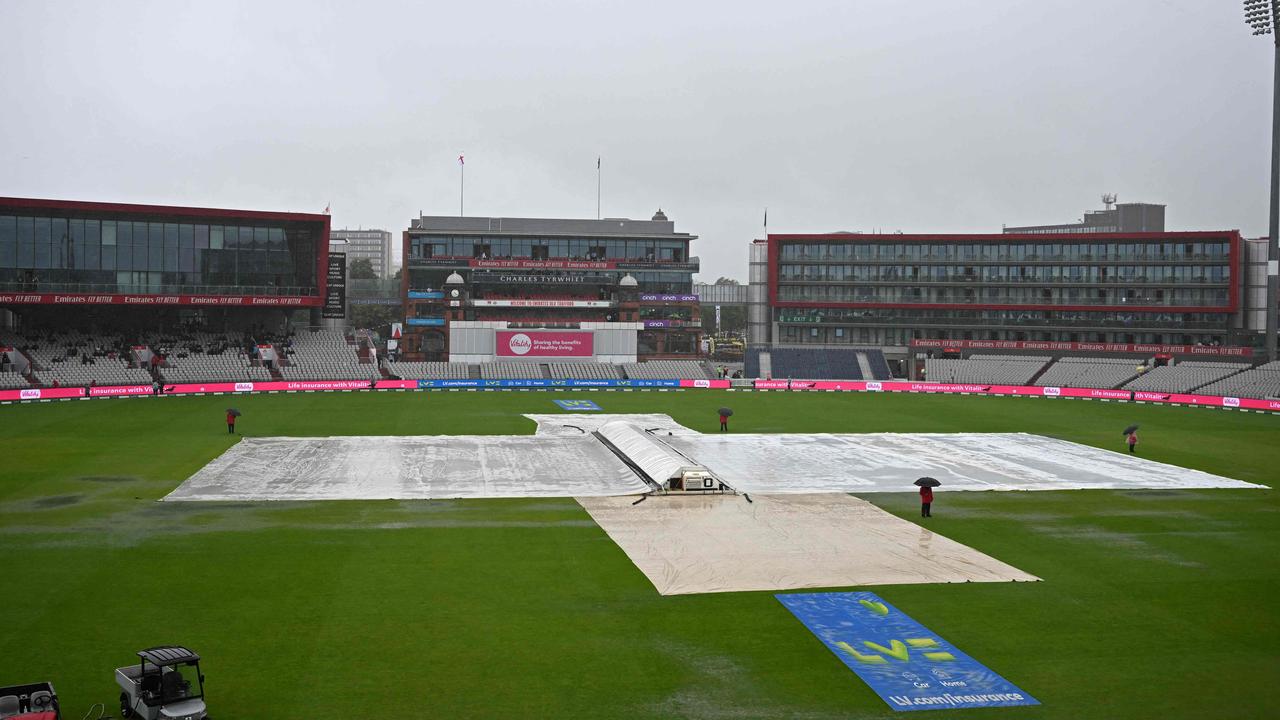Calls for concept of ‘retaining’ the Ashes to be abolished amid fourth Test frustration
One of the world’s most prominent cricket writers has called for the abolition of a cornerstone of the Ashes amid frustration surrounding the fourth Test.

One of the world’s most prominent cricket journalists has called for the concept of “retaining” the Ashes to be abolished after the Fourth Test at Old Trafford.
Watch every game of the Major League Cricket Season LIVE on Kayo Sports. New to Kayo? Start your free trial now >
Gideon Haigh, on News Corp’s Cricket Et Cetera podcast with The Australian’s Peter Lalor, said that the concept was merely a “convention”, and that a drawn series should not necessarily give an implied victory to the existing holder of the urn.
“This idea of retaining the Ashes, I think we actually need to think again about it,” Haigh said.
“It is merely a convention, it’s not codified, it’s not legislated. It’s simply an understanding.
“And an understanding can change by decree of the parties.”
“You do have to win them back, and therefore I think that when neither team wins them outright, they shouldn’t be won by anyone.
“They should remain in abeyance (a state of temporary suspension).”

Haigh said that the current arrangements incentivise “negative cricket”, with the team holding the urn needing only to draw at times, as will be the case when Australia head to the Oval for the final Test this week needing only to draw to win the series outright for the first time since the turn of the century.
“The draw has an unequal weighting – a draw is as good as a win here for Australia and so in some ways it’s an incitement to play negative cricket,” he said.
“To simply draw – let’s say two teams are going 2-2 to the Oval, the incentive would be for the team holding the Ashes to draw that, and you don’t want that.”
Co-host Lalor disagreed, saying that a team needs to be beaten outright to lose possession of the urn.
“No I think you’ve got to beat the other team, and equally I think you should have to be beaten to lose them,” Lalor said.
Haigh noted that the origins of the convention are unclear, with many of the understandings that cricket fans take for granted in the Ashes based in nebulous ideas of tradition, and took the first ever 5-0 Ashes whitewash as an example.

Haigh noted that Johnny Douglas, the English captain that lost 5-0 to Warwick Armstrong’s Australians in 1920-21, was “surprised to learn he had lost the Ashes, because he thought the Ashes was only played for on English soil.”
“Where did he get that idea?” asked a bewildered Lalor.
Haigh elaborated on his thoughts in his regular column for The Australian, calling it a “convention of mysterious provenance, understood rather than codified.
“And I wonder whether it is quite fair, given that it confers a sizeable advantage before the teams even start,” he said.
“How to explain to the uninitiated the Oval Test’s weird hybrid character of being ‘live’ where the outcome of the series is concerned, but ‘dead’ in the context of the Ashes?
“I know cricket’s not meant to make sense. But it might, on occasion, at least try to do so.”
Haigh was not the only cricketing figure suggesting a departure from tradition after the fourth Test at Old Trafford, with England batter Joe Root calling for play to continue into the night until the allotted overs were bowled, with plenty of conjecture around slow over-rates in the game.
Both teams were fined 40 per cent of their match fees for slow play after the series opener by the ICC, and docked two World Test Championship points each, with the allotted 90 overs a day not bowled at any point during the fourth Test at Old Trafford.
“It doesn’t get dark until 10pm here in the summer,” Root told BBC’s Test Match Special.
“Why can’t we play until the overs are bowled?”

Former Australian spinner Brad Hogg also called for a reserve day after the rain-marred draw.
“You can have a reserve day,” Hogg told talkSPORT after the Test.
“I think they should have said, ‘There’s a chance of rain here at Old Trafford. A huge chance of rain, so we may put a rest day here and push the next Test match another day later.’
“We want to make sure we’re going into the final Test match with an opportunity of both teams being 2-2 and we want that highlight going into the last Test match.
“And now we have just missed that opportunity.”
Hogg’s suggestions were roundly rejected by the ECB and the ICC, on the grounds that such a move would cost almost $3 million over the course of a five-Test series.
While the World Test Championship final in which Australia played ahead of this Ashes tour has a sixth reserve day in the event of rain (which was used for a result in the inaugural final in 2021), it is a one-off event at the end of a two-year league.
It also raises a number of logistical and player welfare issues, with the ICC currently mandating a minimum rest period between scheduled Tests.
The idea of introducing longer time periods for Test matches is itself unsustainable in an already packed cricket calendar.






